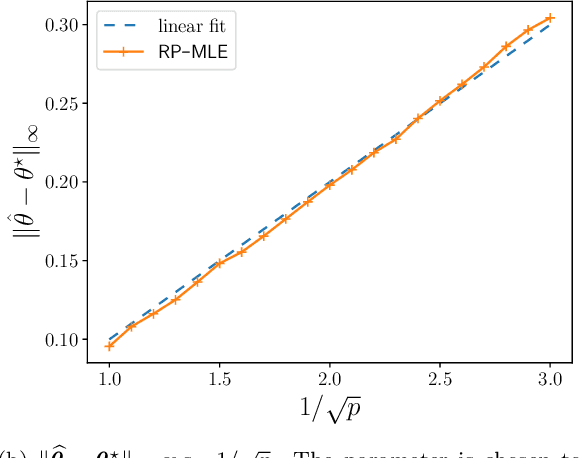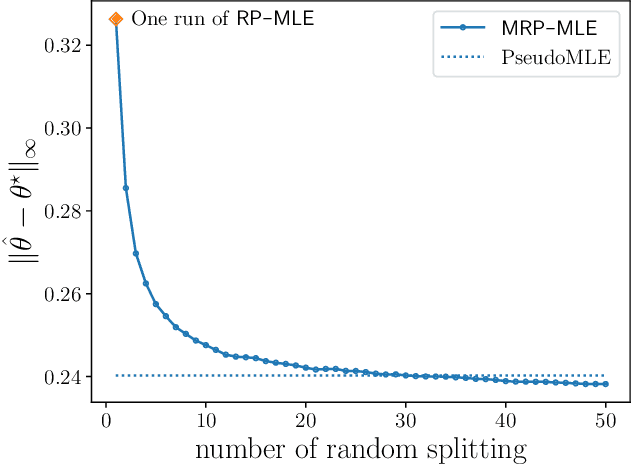Random pairing MLE for estimation of item parameters in Rasch model
Paper and Code
Jun 20, 2024



The Rasch model, a classical model in the item response theory, is widely used in psychometrics to model the relationship between individuals' latent traits and their binary responses on assessments or questionnaires. In this paper, we introduce a new likelihood-based estimator -- random pairing maximum likelihood estimator ($\mathsf{RP\text{-}MLE}$) and its bootstrapped variant multiple random pairing MLE ($\mathsf{MRP\text{-}MLE}$) that faithfully estimate the item parameters in the Rasch model. The new estimators have several appealing features compared to existing ones. First, both work for sparse observations, an increasingly important scenario in the big data era. Second, both estimators are provably minimax optimal in terms of finite sample $\ell_{\infty}$ estimation error. Lastly, $\mathsf{RP\text{-}MLE}$ admits precise distributional characterization that allows uncertainty quantification on the item parameters, e.g., construction of confidence intervals of the item parameters. The main idea underlying $\mathsf{RP\text{-}MLE}$ and $\mathsf{MRP\text{-}MLE}$ is to randomly pair user-item responses to form item-item comparisons. This is carefully designed to reduce the problem size while retaining statistical independence. We also provide empirical evidence of the efficacy of the two new estimators using both simulated and real data.
 Add to Chrome
Add to Chrome Add to Firefox
Add to Firefox Add to Edge
Add to Edge